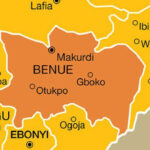I really wanted to stop talking about subsidy removal for two reasons. One, senseless, right-wing, anti-people economic populism has become hegemonic in Nigeria as a direct result of careful, deliberate, sustained, artful, and largely unimpeded propaganda by out-of-touch and unfeeling World Bank/IMF ideologues in Nigeria such as Sanusi Lamido Sanusi, Peter Obi, Ngozi Okonjo-Iweala,Akinwumi Adesina, and others.
Two, because corrosive right-wing populism now enjoys an unchallenged rhetorical high ground, opposing it comes across as deviant, unreasonable, and tone deaf. Most people whose quality of life is being eroded, and in some cases outright exterminated, by the withdrawal of the state from the quotidian life of the citizenry (which subsidy removal represents) have been brainwashed into supporting the policy. They fight people who question the wisdom in exposing vulnerable populations to the torments of the elements through World Bank/IMF-dictated subsidy removal policies.
At a point, you ask yourself if there is any merit in fighting for a people who are deeply invested in their self-immolation, who are cheerleaders for their oppressors, who fight you for fighting for them, whose counter attacks you need to fend off as you attack their attackers, and who remind you of Zimbabwean nationalist Benjamin Burombo’s pithy observation that“Each time I want to fight for African rights, I use only one hand — because the other hand is busy trying to keep away Africans who are fighting me.”
But two things caused me to change my mind. The first was a conversation I had with my retired uncle who told me in a moment of profound despair that the agony that the removal of petrol subsidies has brought on him has compelled him to give up on living and to prepare for his death. That broke my heart. Paradoxically, though, he praised the government for “saving the masses” by removing petrol subsidies, which he thought hurt only “the greedy oil marketers.”
Until I pointed it out to him, he didn’t have any self-awareness of the relationship between the unbearable anguish he was experiencing and the removal of fuel subsidies. That’s precisely what social scientists mean when they say an idea has become hegemonic: most people accept it as self-evidently commonsensical and beyond debate even if it isn’t. Even people who criticize the removal of subsidies in Nigeria only criticize its timing or method, not its undesirability.
Of course, it’s hard to justify apportioning any blame to the Tinubu-Shettima administration for the removal of subsidies. For one, the departing Buhari administration made it a fait accompli. It wasn’t just that removal of petrol and other subsidies were some of the terms and conditions international lenders gave the Buhari administration for securing loans that were stolen with impunity, no provisions were made for subsidy payments in the current budget, which the Buhari regime prepared.
For another, deceitfully engineered mass rage against “subsidy” is so strong in the public sphere that if Tinubu didn’t announce the removal of petrol subsidies, he would have been attacked by both the elite and the poor, not to mention by international finance institutions. Thanks to the successful propaganda of our homegrown neoliberal, right-wing ideologues, being heartless, cold-blooded, indurate, and anti-people is now celebrated as bold, brave, and beautiful.
That’s why I have zero respect for Peter Obi supporters who are critical of Tinubu’s removal of petrol subsidies. More than anyone in the last two years, Obi has emerged as the most passionate assaulter of basic compassion in governance. He parlayed his popularity with a section of Nigeria into an opportunity to attack subsidies, deodorize wickedness in governance, and convince people that a poison that destroys them piecemeal is actually salutary for them. In other words, he helped to create the manufactured anti-subsidy consensus that Tinubu is now exploiting.
And this leads me to the second reason I’ve decided to embark on this futile swim against the self-destructive mainstream of anti-subsidy sentiments in Nigeria. Ideologues of subsidy removal base their arguments around four major points: that it benefits only a few elites, particularly greedy oil marketers; that government needs the money it saves from removing subsidies to fund education, health, and infrastructure (the same canard we’ve consistently heard since the 1980s); that it’s riddled with corruption, which necessitates its removal; and that petrol subsidies only subsidize consumption at the expense of production at a time we need to move from “consumption to production.”
These are all hollow, threadbare, and logically impoverished arguments.For starters, the notion that subsidies don’t benefit the poor is one of the stupidest, most manifestly flawed fallacies I’ve encountered in my entire life. Petrol subsidies are the only subsidies that benefit all strata of the Nigerian social hierarchy. All other subsidies exclusively benefit the rich.
The evidence stares at us everywhere if we care to look with sensitivity and empathy. It stares at us in the crushing collapse of everyday life in Nigeria because of the removal of fuel subsidies. Transport fares have more than tripled. The cost of food has more than tripled, too, because of the increase in the cost of transporting food from point to point.
People are resigning from their jobs because the cost of transportation to work is now higher than their monthly salaries. So, unemployment, which is already unsustainably high, will triple with the attendant unsettling effect on society.
The informal economy, where the vast majority of Nigerians are employed, is folding because small businesses can’t power their generators for their businesses in the absence of stable electricity from the national grid. Small businesses such as grinding machine businesses that use generators to power their engines are packing up.
Those that can afford to power their generators can’t produce because everyday folks can’t afford the new petrol-price-increase-inflected cost of the goods and services they produce. This reality gives the lie to the idea that we’re subsidizing “consumption” and not “production.” Consumption and production are not mutually exclusive; they’re mutually reinforcing.
Schools and even government ministries in many states are reducing workdays because ordinary people can no longer afford the 5-day commute to school or work. That affects productivity and the future of our children. And some people say petrol subsidies benefited only a few rich people? What kind of mind-altering weed do these callous dunderheads smoke?
Even the wicked wretches and witches at the World Bank have conceded that an additional 7.1 million Nigerians will be thrown into the menacing trap of multidimensional poverty as a result of the removal of petrol subsidies. “Without compensation, many households could be pushed into poverty by higher petrol prices and forced to resort to coping mechanisms with long-term adverse consequences, such as not sending children to school, or not going to health facilities to seek preventative healthcare,” the World Bank said.
And oil marketers? These are friends of people in government who have been given blank cheques to extort Nigerians as they wish. When Tinubu announced the removal of petrol subsidies, these same marketers who are supposed to be the targets of subsidy removal arbitrarily jacked up their pump prices to more than N500 per litre on old stock that was subsidized by taxpayers, and which was supposed to be sold at N184. That was a government-sanctioned rape of Nigerians.
Now the oil marketers say whenever they replenish the current stock, Nigerians will pay more than N700 per liter starting this July. In other words, whether or not there are subsidies, the marketers will always make money.
There is unanimity of opinion that petrol subsidy administration is riddled with unspeakable corruption, as everything else in Nigeria is. But why is the corruption in petrol subsidy administration the only kind of corruption that causes the government to stop it? Why not the corruption in the turn-around maintenance of non-functional refineries, for example, where way more money is stolen than in subsidies? For that matter, why not governance itself, which is a magnet for the biggest corruption in Nigeria?
Every government project is amenable to corruption. Even in the US here, welfare projects for poor people and unemployment benefits for people who have lost their jobs are riddled with corruption. The recent COVID relief funds, for example, were undermined by corruption. But you know what the government here hasn’t done? Stop helping people who need it because of the corruption in the programs designed to help them. You know what it does? Go after the corruption in the system.
Instead of reforming the dispensation of subsidies so that people who need the relief can get it, people are being told to “sacrifice.” As an elder statesman told me recently, the poor are actually now being “sacrificed” while the political elites use proceeds from the removal of subsidies to fund their luxuries.
But you will never hear opponents of subsidies (who, by the way, benefited from subsidies right from their primary school up to their universities but who now want to break the ladder they used to climb to their current positions) talk about the corrupt, unearned privileges of the rich and the powerful.
Their “bravery” and “expertise”come forth only when they attack subsidies for the poor, when they defend the destruction of the fabric of society that mean, racist, and hateful IMF/World Bank economists recommend.
No society that brazenly starves and robs its poor to enrich its rich should expect to make progress or enjoy peace.
READ ALSO FROM NIGERIAN TRIBUNE
WATCH TOP VIDEOS FROM NIGERIAN TRIBUNE TV
- Relationship Hangout: Public vs Private Proposals – Which Truly Wins in Love?
- “No” Is a Complete Sentence: Why You Should Stop Feeling Guilty
- Relationship Hangout: Friendship Talk 2025 – How to Be a Good Friend & Big Questions on Friendship
- Police Overpower Armed Robbers in Ibadan After Fierce Struggle






